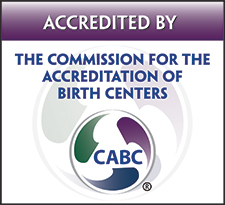Introducing Our Reduced Prenatal Care Schedule
This month, we introduced our reduced prenatal care schedule as an opt in option for our clients planning home or Coit House birth. Studies have shown that the frequency of prenatal visits we have become accustomed to in the American model of maternity care does not make pregnant people or their babies safer. This standard prenatal care schedule was developed without any evidence on how many visits are necessary to ensure the best outcomes. In fact, there is research indicating that a high number of prenatal visits for low-risk people can actually increase the risk of birth interventions. Our reduced prenatal care schedule is an excellent alternative for people who have had a previous vaginal birth and for those who live far from the Coit House. This schedule of prenatal care is common in European countries, which have better maternal and infant health outcomes than we do in the United States.
What are the benefits of less prenatal care?
Although a high number of prenatal visits for people with uncomplicated pregnancies has been widely accepted in the United States, several studies conducted over the past 30 years have proven that the number of prenatal visits can be safely reduced. In 1989, a multidisciplinary panel on the content of prenatal care was convened by the United States Public Health Service. The panel suggested a reduced schedule of prenatal visits could make care more effective. A trial of 2,764 low-risk pregnant people showed no significant increases in preeclampsia, cesarean delivery, low birth weight, or patient satisfaction for those who participated in the reduced schedule. In addition, a Cochrane Review from 2010 found no differences in perinatal mortality between people randomized to standard or reduced prenatal care groups in high income countries. Likewise, an article from 2015 examined a cohort of 7,256 pregnant people and found that those who were low-risk and had more than 10 prenatal visits had no improvement in neonatal outcomes. Those with a high number of prenatal visits did, however, have increased rates of birth interventions such as labor inductions and cesarean deliveries.
How does reduced prenatal care compare to the traditional prenatal care schedule?
In our traditional prenatal care schedule, clients attend 12-14 or more prenatal visits at the Coit House with our clinical staff. Our reduced prenatal care schedule contains 7-8 routine prenatal visits or more depending on each client’s individual needs. This reduced schedule ensures that all of our clients receive the screenings, referrals, and educational resources they need to make informed decisions and promote a healthy pregnancy, birth, and postpartum.
Who can opt-in to reduced prenatal care?
It is important that those who opt in to our reduced prenatal care schedule have easy access to support and educational resources. Likewise, it is the pregnant person’s responsibility to bring any issues or concerns to the attention of Fika Midwifery staff as soon as possible to ensure additional appointments are scheduled. Before you opt in to our reduced prenatal care schedule, make sure you are prepared to take on this additional level of ownership over your pregnancy care.
The reduced schedule of prenatal care includes visits at the following intervals:
-
Initial visit at 10-12 weeks, where you will have lab and blood work performed and receive a referral for your anatomy ultrasound
-
Visit at 20 weeks, where the midwife will review your anatomy ultrasound and make a plan with you for your gestational diabetes screening
-
Visit at 28 weeks, where your gestational diabetes screening will be performed along with other individualized components of care
-
Visit at 32 weeks, where the midwife will review your birth plan with you
-
Visit at 36 weeks, where you will be screened for Group B Strep and receive a limited ultrasound to confirm your baby’s position
-
Routine visits at 38 weeks, 40 weeks, and 41 weeks
-
In addition, in-person or telehealth appointments can be scheduled at any time if issues or concerns arise.
If you’re interested in opting in to our reduced prenatal care schedule, talk to Maura at your next visit to see if this is the right fit for you, or message us through the patient portal!
Author Mary Badame is the Quality Assurance Manager at Fika Midwifery and is a passionate advocate for midwife-led care, increased birth options, and better reproductive healthcare for everyone.




